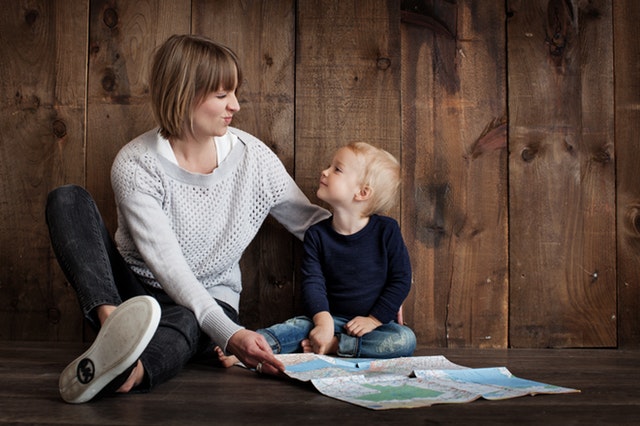
My father’s a fast learner: when I was 15, he knew nothing; by the time I was 25, he knew everything.
Author unknown
I saw that quote around the time my first child was born and it stuck with me (though, sadly, not the author). Now that my children are teenagers, it’s taken on new meaning. My kids are not stereotypical teenagers constantly – moody, self-absorbed, rebellious, etc. – though they have a few moments. I’ve shared the quote with many friends who are in the same stage and it’s been a real source of encouragement to them.
The quote is interesting because it links generations. Most people can identify with it because of their own experience with their own parents. Almost by definition, parents start off as not being “human” to their children: initially, they are the whole universe the children inhabit, forces of nature. As children start to understand more and explore the world, parents become “just” their home. And when their growth and explorations take them further afield, parents remain the foundation, then the walls (first, to keep bad things away and, later, allegedly, to restrict the children’s freedom) then fade to become the wallpaper.
Eventually Human
If the relationship is healthy, eventually children come to see their parents as people, humans with strengths, weaknesses, hopes, dreams, fears, disappointments, likes, and dislikes. People who have become who they are because of nature and nurture – the experiences that shaped them. People who have to fight against what they know are negative habits and tendencies, who sometimes win and sometimes lose that battle. Human links in a chain of ancestry and genealogy that stretches back millennia.
I would like to think, though, that something that short-circuited the process for me. My father became human to me much earlier than my peers. I remember other boys in high school disparaging their fathers and thinking that I’d never think of, let alone speak of, my father in that way.
The Difference
I think my father was different to me because he had a disability. My father contracted polio as a baby and it left one of his legs extremely weak, almost completely devoid of muscle. The rest of my father was very much muscular, though. At their peak, his biceps were as big as my legs are today and his other leg was much more powerful to compensate.
To this day, he loves his sports. Where other kids might have seen a father who was too keen on watching sports on TV, I saw a man who missed out playing as much as he should have because of an illness he couldn’t control.
It also made me fiercely protective of my father. When his old friends teased him – not about his disability, but just in general – as old friends are wont to do, and before I was mature enough to understand that teasing is how old friends show they care, I got angry. How dare they insult my father!
Grateful
My father never once complained about his disability, to my knowledge. He did have to explain to me many times about what he could and couldn’t do because of his weak leg (walking on uneven ground is the main one). There are some outdoors experiences he and I couldn’t share growing up arising from it. But his example never left me room to complain about his limitations or mine, either.
In fact, now I’m grateful for my father’s disability. I’m not a patient person (come by it honestly, from my mother’s side, as she freely admits!) but I see that my father’s lack of mobility has helped me in that area. I’d like to think it has given me more empathy for others with physical challenges. It may be that my father’s strength in the face of adversity has made me less tolerant of the gripes of those I perceive to be facing lesser difficulties while making more noise.
I’m also grateful for my father’s disability now because, as he gets older and his leg becomes more of an impediment, I have the privilege of helping him move around – perhaps trying to repay, in some small part, all that he’s done for me.
Next Generation
Perhaps because my father was “human” early for me, I try to make sure my own children see me as human. Keeping the lines of communication open, exercising wisdom on when to probe and when to wait, paying attention to how they talk with their peers (e.g. “sick” apparently now means “awesome”), admitting to weaknesses and failures (and apologizing, when appropriate) seem to pay off. On the other hand, being realistic about strengths and victories is equally important.
There’s still a ways to go and many ways to mess up – the younger two kids are just into the teen years – but I hope and pray that my children will see me as a whole human being and that our relationship will be the stronger for it.
About the Author
Anil Balaram is a full-time software engineer and part-time marketing manager at Ideal Carpet Cleaning. He grew up in Ottawa and attended Carleton University. Anil and his wife have three teenage children.